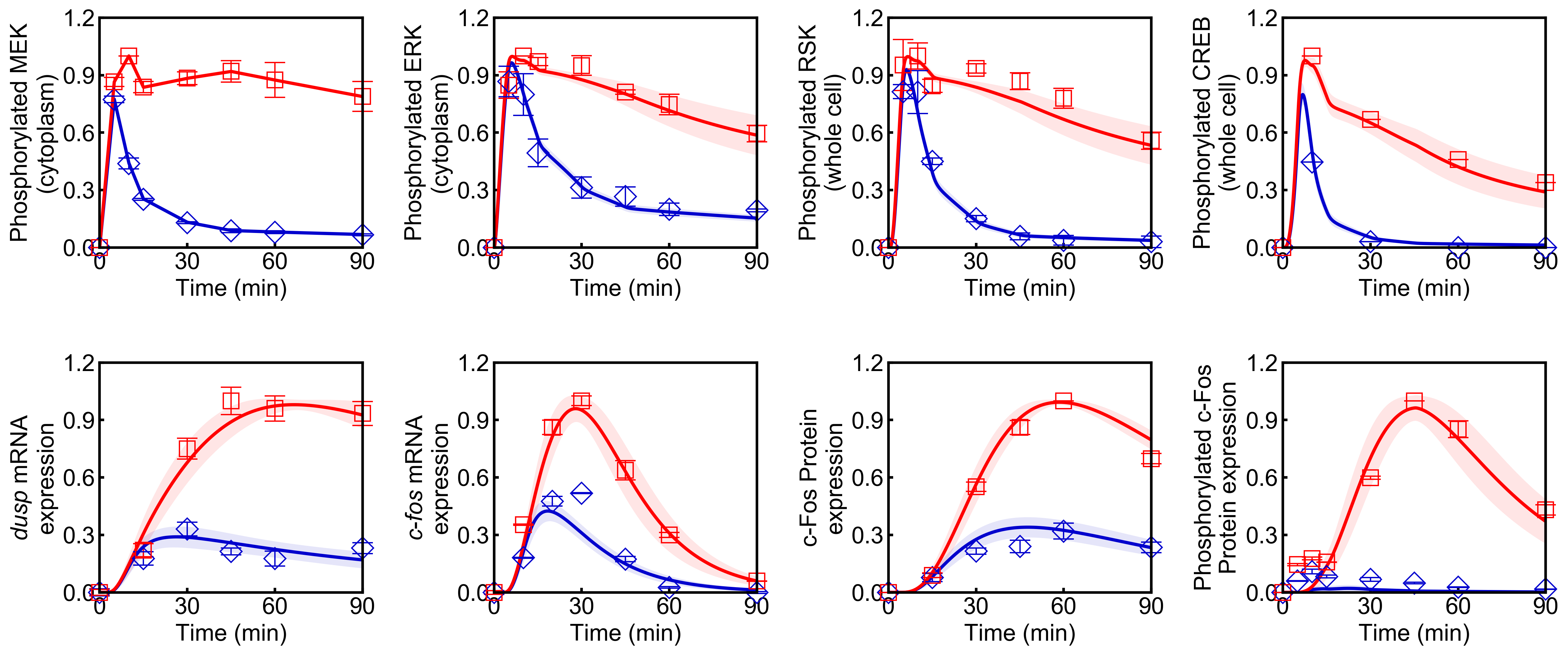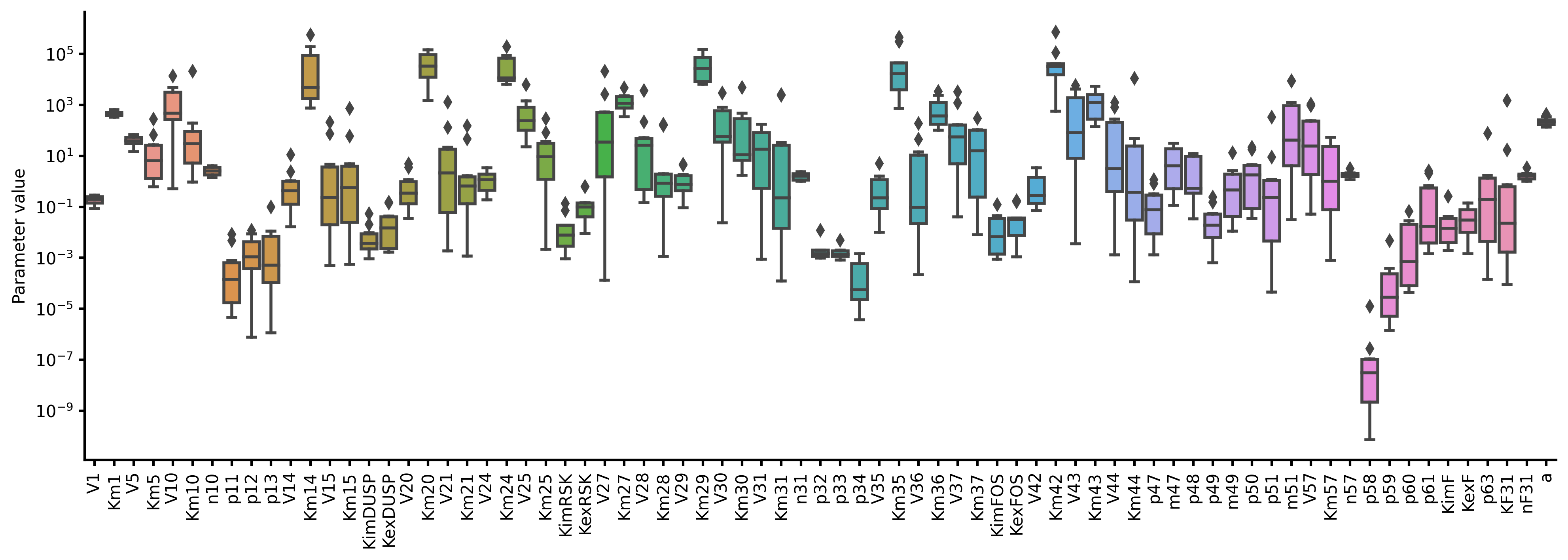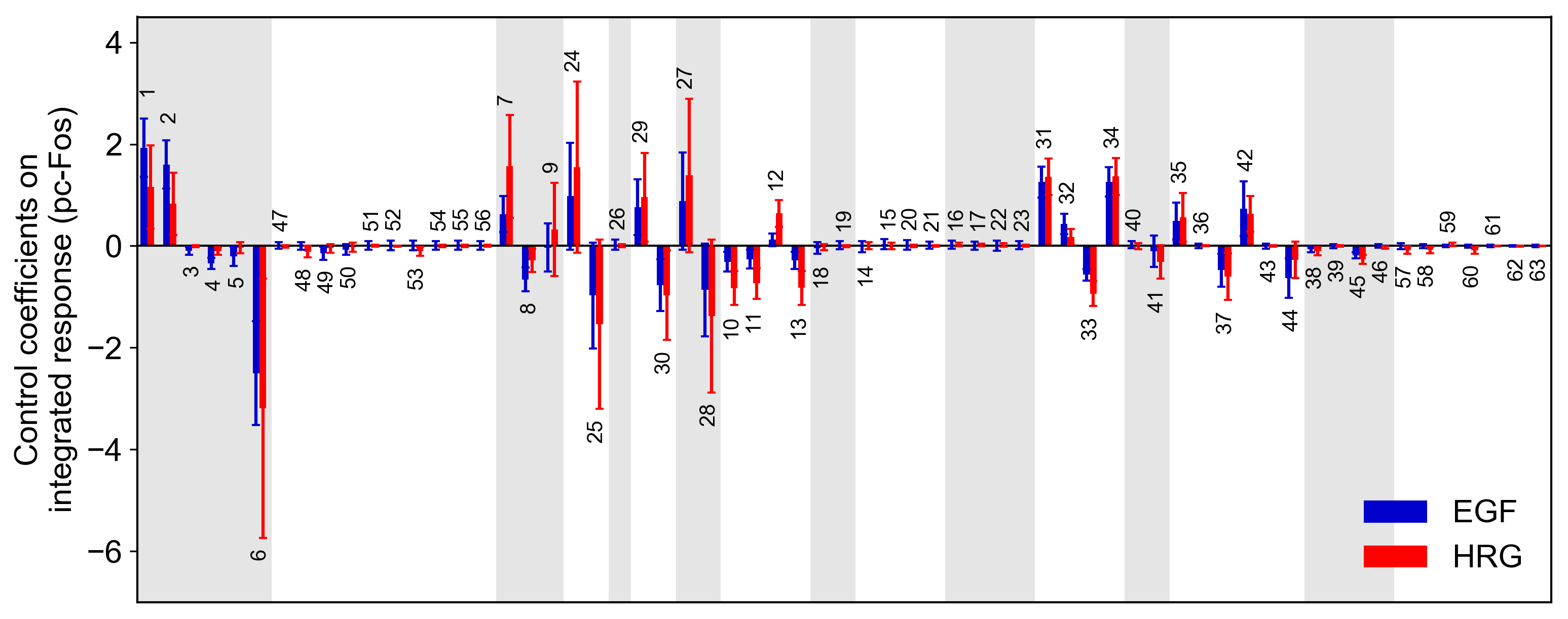A Python Framework for Modeling and Analysis of Signaling Systems
Project description
BioMASS

Mathematical modeling is a powerful method for the analysis of complex biological systems. Although there are many researches devoted on producing models to describe dynamical cellular signaling systems, most of these models are limited and do not cover multiple pathways. Therefore, there is a challenge to combine these models to enable understanding at a larger scale. Nevertheless, larger network means that it gets more difficult to estimate parameters to reproduce dynamic experimental data needed for deeper understanding of a system.
To overcome this problem, we developed BioMASS, a Python framework for Modeling and Analysis of Signaling Systems. The BioMASS framework allows efficient optimization of multiple parameter sets simultaneously and generates the multiple parameter candidates that explain the signaling dynamics of interest. These parameter candidates can be further evaluated by their distribution and sensitivity analysis as a part of alternative information about the hidden regulatory mechanism of the system.
Features
- Parameter estimation of ODE models
- Local sensitivity analysis
- Effective visualization of simulation results
Documentation
Online documentation is available at https://biomass-core.readthedocs.io/.
Installation
The BioMASS library is available at the Python Package Index (PyPI).
$ pip install biomass
BioMASS supports Python 3.7 or newer.
Example
Parameter estimation
from biomass import Model, optimize
from biomass.models import Nakakuki_Cell_2010
model = Model(Nakakuki_Cell_2010.__package__).create()
optimize(model, x_id=range(1, 11))
from biomass import run_simulation
run_simulation(model, viz_type="average", stdev=True)

Sensitivity analysis
from biomass import run_analysis
run_analysis(model, target="reaction", metric="integral", style="barplot")
Control coefficients for integrated pc-Fos are shown by bars (blue, EGF; red, HRG). Numbers above bars indicate the reaction indices, and error bars correspond to simulation standard deviation.
Citation
When using BioMASS, please cite the following paper:
- Imoto, H., Zhang, S. & Okada, M. A Computational Framework for Prediction and Analysis of Cancer Signaling Dynamics from RNA Sequencing Data—Application to the ErbB Receptor Signaling Pathway. Cancers 12, 2878 (2020). https://doi.org/10.3390/cancers12102878
Author
License
Project details
Release history Release notifications | RSS feed
Download files
Download the file for your platform. If you're not sure which to choose, learn more about installing packages.
Source Distribution
Built Distribution
File details
Details for the file biomass-0.5.1.tar.gz.
File metadata
- Download URL: biomass-0.5.1.tar.gz
- Upload date:
- Size: 74.8 kB
- Tags: Source
- Uploaded using Trusted Publishing? No
- Uploaded via: twine/3.4.1 importlib_metadata/4.6.1 pkginfo/1.7.1 requests/2.26.0 requests-toolbelt/0.9.1 tqdm/4.61.2 CPython/3.8.10
File hashes
| Algorithm | Hash digest | |
|---|---|---|
| SHA256 | d932f6a943c81295ee791f303527d03eb534187e45a9c3e1192525eaacd1a0ad |
|
| MD5 | 78901751983c9e7bb918c35881b7cc0c |
|
| BLAKE2b-256 | e5115eaaad9fad247f985ea47a530ffa5e774cc66bce5fb62b3be2cec21e7d2c |
File details
Details for the file biomass-0.5.1-py3-none-any.whl.
File metadata
- Download URL: biomass-0.5.1-py3-none-any.whl
- Upload date:
- Size: 99.3 kB
- Tags: Python 3
- Uploaded using Trusted Publishing? No
- Uploaded via: twine/3.4.1 importlib_metadata/4.6.1 pkginfo/1.7.1 requests/2.26.0 requests-toolbelt/0.9.1 tqdm/4.61.2 CPython/3.8.10
File hashes
| Algorithm | Hash digest | |
|---|---|---|
| SHA256 | 42ad987366c66e44bf9309c271dbd167500b8cd48f25746648715d4d18d6a512 |
|
| MD5 | e4c594a99b807fbae21cef713c8b4fdc |
|
| BLAKE2b-256 | bfea92b6ab7ca5d38990d41296e07cc65d9cfeb7ed76fd199bd67e03efd6d8b7 |





















